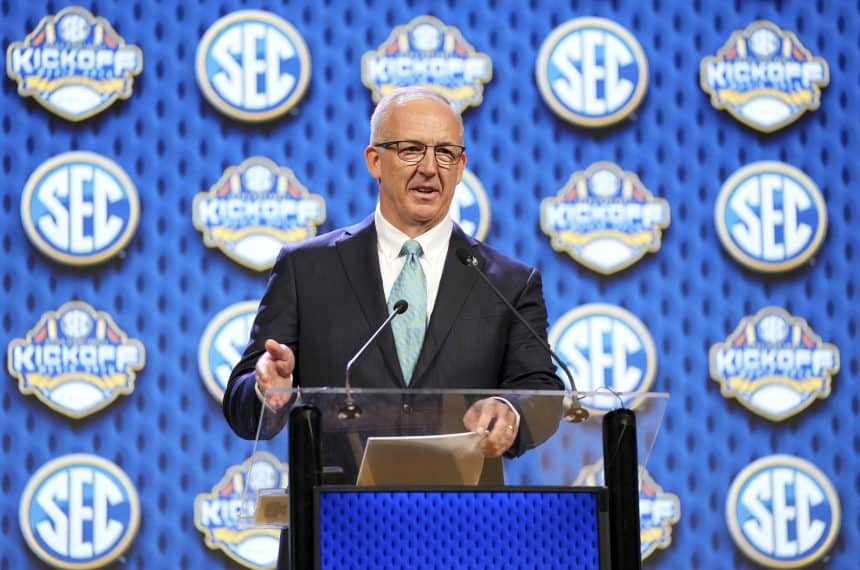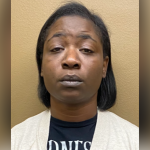MIRAMAR BEACH, Fla. (AP) — The commissioner of the Southeastern Conference is hearing increased interest from his league’s leaders about a previously little-discussed idea of expanding the College Football Playoff from 12 to 16 teams.
“Sixteen has had more traction in my league than I would’ve anticipated,” Greg Sankey said Monday at the kickoff of the league’s annual meetings.
A move to 14 teams had been widely viewed as the next expansion, but Sankey said “16 has become more central in the conversation. We’re interested, not committed, but the interest level has gone higher.”
The future of the playoff will be among the topics discussed among school presidents, athletic directors and coaches in what might be the most consequential of the many conference meetings taking place this spring.
Last week, all 10 conferences and Notre Dame provided the unanimous agreement needed to move to a straight seeding model for next year’s playoff, which will remain a 12-team affair.
It’s a move Sankey started pushing for shortly after last season’s bracket elevated Arizona State and Boise State — each ranked ninth or lower by the playoff selection committee — into the top four, where they received first-round byes.
The next major shakeup will comes for the 2026 season, where the SEC and Big Ten will play the biggest decision-making role in what comes for the six-year, $7.8 billion ESPN contract that covers the playoff through 2031.
The commissioner said he is neither committed to the 16-team idea, nor to the oft-floated idea of providing up to four automatic bids to both the SEC and Big Ten in whatever format comes next.
A shift to more automatic bids for the SEC could lead the league to scrap its conference title game — a concept hatched 33 years ago by former SEC commissioner Roy Kramer — in favor of some slate of “play-in” games for those automatic spots.
It could be a money maker. Ultimately, all schools desperately need to increase revenue to cover the $20.5 million in direct name, image, likeness payments, along with added expenses for financial aid — all of which come into play if a federal judge approves settlement terms of a long-running lawsuit that could be wrapped up while the meetings are happening this week.
But Sankey said no decisions have been made, and this is the week for hashing them out.
“We’ll look a little bit more deeply at different ideas, which will put me at some point in a better position to answer those questions,” Sankey said.








